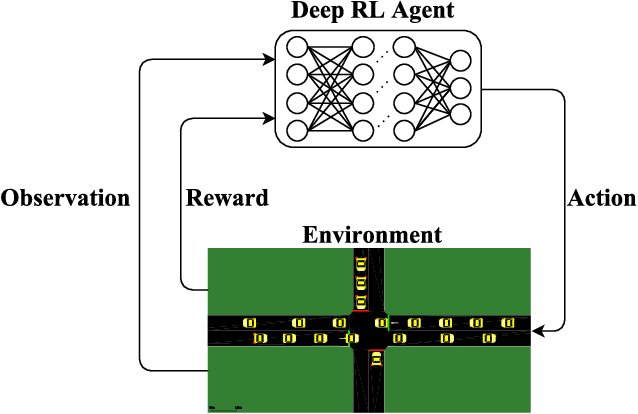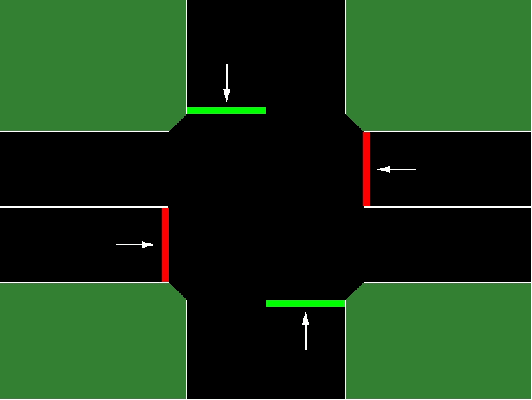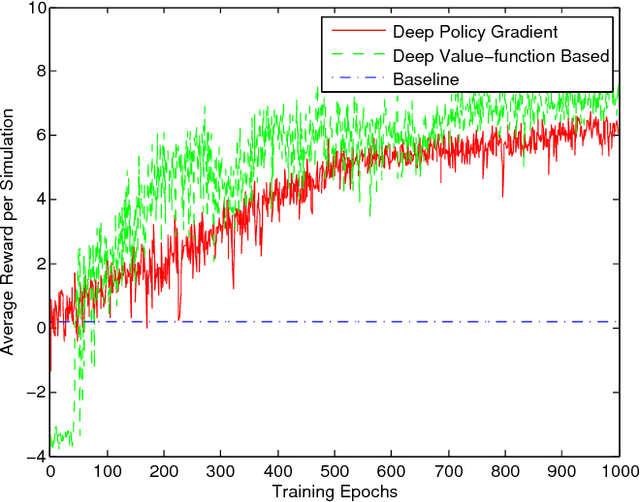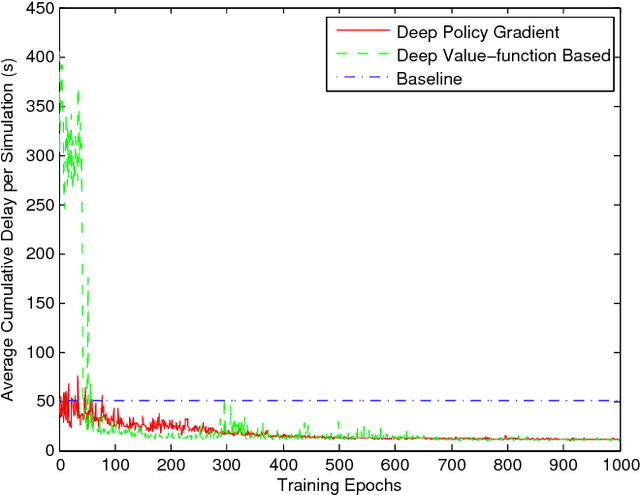Traffic Light Control Using Deep Policy-Gradient and Value-Function Based Reinforcement Learning
Paper and Code
May 27, 2017



Recent advances in combining deep neural network architectures with reinforcement learning techniques have shown promising potential results in solving complex control problems with high dimensional state and action spaces. Inspired by these successes, in this paper, we build two kinds of reinforcement learning algorithms: deep policy-gradient and value-function based agents which can predict the best possible traffic signal for a traffic intersection. At each time step, these adaptive traffic light control agents receive a snapshot of the current state of a graphical traffic simulator and produce control signals. The policy-gradient based agent maps its observation directly to the control signal, however the value-function based agent first estimates values for all legal control signals. The agent then selects the optimal control action with the highest value. Our methods show promising results in a traffic network simulated in the SUMO traffic simulator, without suffering from instability issues during the training process.
 Add to Chrome
Add to Chrome Add to Firefox
Add to Firefox Add to Edge
Add to Edge